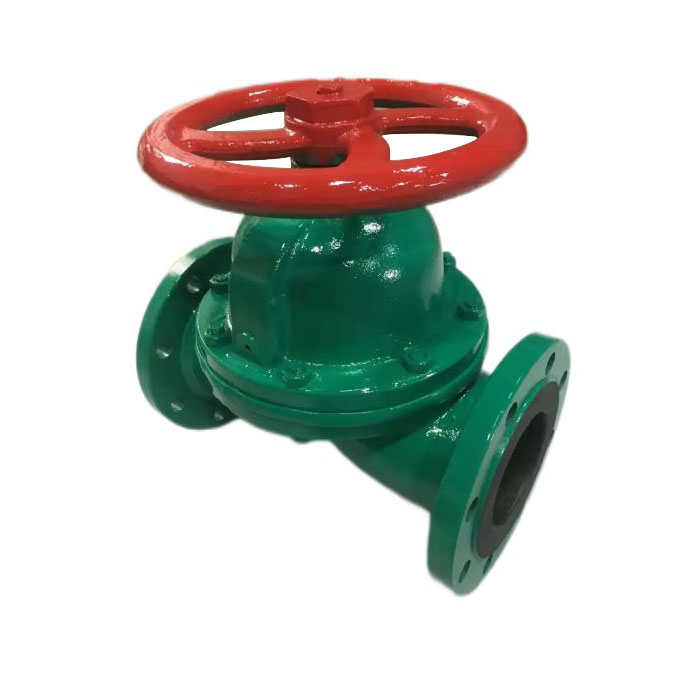Applications of Weir Type Diaphragm Valve
2024-07-09
A Weir Type Diaphragm Valve is a specific type of industrial valve known for its unique design and functionality, primarily used to control the flow of fluids in various applications where precise regulation and sealing are critical. Here's an overview of what a Weir Type Diaphragm Valve entails:
Structure and Design
1. Diaphragm Assembly:
- Flexible Diaphragm: Central to the valve's operation, the diaphragm is a flexible membrane that seals the valve body, preventing leakage.
- Weir Type Design: The valve features a raised "weir" or rim around the perimeter of the valve seat. When the diaphragm is in the closed position, it seals against this weir to prevent fluid from passing through.
2. Valve Body and Actuation:
- Body Materials: Typically made from materials like plastic, stainless steel, or other corrosion-resistant alloys depending on the application.
- Actuation Methods: Can be manually operated (handwheel or lever), pneumatically operated (air pressure), or electrically operated (motorized).
3. Operation Mechanism:
- Linear Motion: As the valve is actuated, the diaphragm moves up and down, controlling the flow of fluid by either allowing passage or blocking it completely.
- Shut-off Capability: Provides excellent shut-off capability due to the sealing action of the diaphragm against the weir.
Applications
1. Industrial Processes:
- Chemical Processing: Used in chemical plants to handle corrosive fluids and gases where tight shut-off and resistance to chemical attack are crucial.
- Water Treatment: Applications in water and wastewater treatment facilities for controlling the flow of various liquids and slurries.
2. Biopharmaceutical Industry:
- Sterile Applications: Suitable for sterile applications in pharmaceutical manufacturing and biotechnology where contamination control is essential.
3. Mining and Mineral Processing:
- Abrasive Media Handling: Handles abrasive slurries and fluids encountered in mining and mineral processing operations.
Advantages
1. Reliable Sealing:
- Provides a tight seal against leakage even with corrosive or abrasive fluids, reducing the risk of contamination and environmental hazards.
2. Versatility:
- Suitable for a wide range of fluids, including viscous liquids, slurries, and gases, due to its robust construction and sealing mechanism.
3. Low Maintenance:
- Requires minimal maintenance due to its simple design and fewer moving parts compared to other types of valves.
Considerations
1. Flow Characteristics:
- Depending on the design, Weir Type Diaphragm Valves may exhibit varying flow characteristics, such as linear or equal percentage.
2. Material Compatibility:
- Ensure compatibility with the fluid and operating conditions to avoid corrosion, erosion, or degradation of valve components.
3. Pressure and Temperature Limits:
- Consider the valve's pressure and temperature ratings to ensure safe and reliable operation within specified limits.
Conclusion
A Weir Type Diaphragm Valve is valued in industries requiring precise flow control, reliable sealing, and resistance to corrosive or abrasive fluids. Its unique design and operational features make it suitable for a wide range of applications where fluid handling and environmental safety are paramount.



